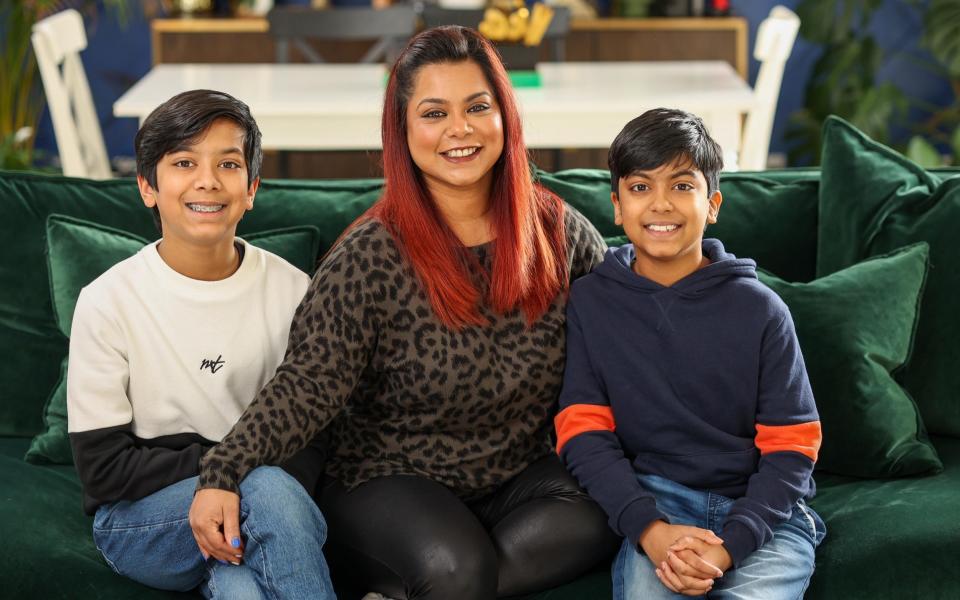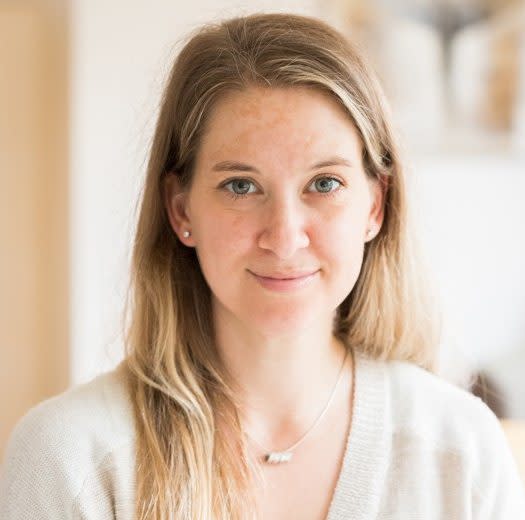‘Awful and over complicated’: the D-Day that decides your child’s education

For those with a child in Year Six of primary school, National Offer Day – or March 1 – is perhaps one of the most important days in the school calendar. This year, more than half a million families will learn where their child is going for secondary school.
Often, the issue is not straightforward, with grammar and certain state schools being heavily oversubscribed, and others having varying admissions criteria to do with distance or academic banding.
In addition, some parents are grappling with whether to pay for private education, knowing that if Labour gets in at the next general election, VAT will probably be added to their bill.
Mrinalini Raman, 41, who runs a wedding planning company, is hoping her 10-year-old son, Arjun, will go to Stanborough School in Welwyn Garden City, Hertfordshire, which specialises in maths and computing.
Her eldest son, Riyaansh, 12, already attends the school, but she says there are no guarantees her youngest will get in.
“Many years ago, the school struggled slightly but for the past five years, the new head teacher has turned it around so it is now highly sought-after,” she says.
“I am of Indian heritage, and my culture really cares about education. It’s very important to me.
“I always teach my children that they can do what they want when they’re older, but they need good grades to fall back on.
“I make the eldest study three times a week so he will be prepared for his GCSEs.”

Raman says that if her son does not get his first choice, she will not be happy as their other choices are far away from where they live.
“We will have to appeal,” she says. “I will be on edge until we know the situation. It is quite overwhelming and stressful. In some ways, I wish I could afford to send them privately, but I can’t. To be honest, my sons don’t really seem to care that much. It is just the added stress that parents take on.”
‘It feels like an illusion of choice’
In Penge, south east London, parents are just as anxious.
Ruth Pilgrim, 39, has a “clever and quiet” son hoping to go to a grammar school in Kent – a decision she will learn on March 1.
She says: “We live on the Kent border, so our first choice is St Olave’s Grammar School in Orpington.
“We paid for tutoring to help our son pass the 11-plus, but I have no idea if he has got in.
“There are 1,600 boys who apply for 124 places, so he has very strong competition and the primary school he was at didn’t help to prepare him.”
Their second choice school has no selection or distance criteria, but it is heavily oversubscribed as anyone can apply. Their third choice has a banding test – so allocates a certain number of places to academic ability bands – and also has distance criteria.
Pilgrim says: “It is awful. Each school has their own criteria. And it feels like an illusion of choice.
“I know parents with older children who didn’t get any of their top three choices. The local authority has to give you a school, but it ultimately might not be one on your list.”
She explains that she and her husband have found the process very stressful – and that the system is overly complicated.
“We are lucky,” says Pilgrim. “We are degree-educated so we can apply ourselves to it. But many won’t have that skill.
“It’s complicated to access. For the selective school, you have to fill in forms in June, and the primary schools offer no guidance.
“But I wonder how is this helping some of the children, and how is this accessible, especially if you are working long hours and can’t attend the open evenings?” Pilgrim says that her son is anxious about the decision and will be nervous on National Offer Day. She says: “Our son is pretty wound up about it.
“Change is difficult at the best of times, and knowing you have no control over it… I think he’s finding it really difficult. My husband and I are also worried about National Offer Day. We need to look at what we do if we don’t get one of our choices. Do we go on waiting lists? Do we appeal? I don’t know yet.”
For some, the stress of choosing between grammar and state is compounded by throwing private schools into the mix. According to 2023 data from the Independent Schools Council, there are 554,316 pupils currently attending independent schools in the UK, representing around 6 per cent of all school attendees in the country.
‘It’s been a full-time job keeping on top of the exams and requirements’
Sarah Hall* says: “My husband and I are battling over whether to send our child to state or private school, so National Offer Day will be interesting.”
Sarah, who lives in Kent, put her child in for the local grammar school, but she has already been told that she narrowly missed out.
She says: “In a way, I wish we had tried harder to help her, then our decision would be easy.
“But after missing out, our daughter then became interested in what other good schools were out there.”
Her daughter has sat five entrance exams to local private schools, being offered a 60 per cent bursary at her favourite one.
“This will still mean us paying roughly £8,500 a year, which we don’t have,” says Hall. “If Labour gets in, VAT may be added, so this will be about £10,000. Plus, she has a younger sister, so I suppose it would mean paying for both of them.”
Hall is inclined to send her daughter to the local state school, which is classed as outstanding by Ofsted, if she gets in on March 1.
“She has a music scholarship there, which gives her free music lessons, so I think this is the best choice,” she says.
“Even the other two state schools I think are decent. Plus, in my heart, I think private schools are divisive.”
But her husband is angling for their child to attend private school.
“He would prefer for her to go there, and is trying to persuade me in terms of the benefits of smaller class sizes and extra opportunities,” she says.
Hall adds that her cohort of friends with children in Year Six have been very stressed by the process.
“It’s been a full-time job keeping on top of the exams and requirements and open days. It’s been very stressful.”
She adds: “I literally don’t know what we will do on National Offer Day. It will be an interesting morning, and we only have a few days to decide as the private school needs to know very quickly.”
‘For parents with children who have a special educational need, it can be doubly stressful’
As anxiety-inducing as the situation is for neuro-typical children, the situation is perhaps worse for children with a special educational need (SEN).
Lucy Spencer, founder of Education Boutique, which specialises in integrating SEN children into school says: “Understandably, parents of children who are neuro-typical are filled with anxiety, but for parents with children who have SEN or are emotionally-based avoidant, it can be doubly stressful. Due to the number of forms and meetings needed, many parents don’t know where their children will be going until after National Offer Day.”
Emma Hester, 47, of Bracknell, has a child, Grace, 11, who is autistic and has ADHD but is very able academically. Grace’s anxiety causes her to struggle to attend school.
Hester says: “Children who have an education, health and care plan (an EHCP certificate) get told on varying days which secondary school they will be going to.
“So we found out last week that Grace will be going to Ranelagh School, a very good church school nearby. Parents bite their arm off to get in there, so we know we are fortunate. However, due to SEN systems being underfunded and a bit chaotic, we have not been able to give the school the full picture yet of Grace’s needs, so I doubt they will be able to meet them.”
She says that ideally Grace needs to go to a school for children with autism, but these don’t exist.
She adds: “Often the teachers don’t understand the level of Grace’s needs because she masks exceptionally well, as do many autistic girls.”
She points to a 2023 study that showed 28 per cent of state-funded secondary school pupils being identified as persistently absent.
“There are more and more children who, due to various reasons, struggle to go to school and do their best when there,” says Hester.
“Schools desperately need more funding, and more SEN support, so all secondary school children can thrive.”
‘It’s sending your child out into a new era, with less control’
Meanwhile, in Coventry, Dr Marianne Trent, 42, is hoping her son gets his first choice – so he avoids going to a school notorious for bullying.

She says: “I wish I could afford private school but I can’t. “The local school used to be classed as needing improvement, but a new head teacher has turned it around, so we are hoping to get in there.”
She says it would be ideal if all the schools in her area were outstanding and safe, but it’s not the case.
She says: “Now that the local school has been turned around, I’m excited for National Offer Day, as my son wants to go there.
“He had a great time when he went to visit the school – going on the trampoline and making toothpaste in the science lab.
“But had it not improved, I would be very worried.”
She adds: “Schools are a big part of family life, and your children are potentially there from age 11 to 18. It’s sending your child out into a new era, with less control. It’s understandable that parents are anxious.”

 Yahoo News
Yahoo News 
